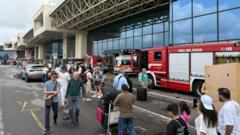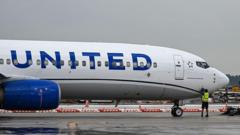Overview of the Disruption
Heathrow is among several European airports hit by a cyber-attack that has affected an electronic check-in and baggage system. The airport has issued warnings regarding potential delays due to a technical issue involving software provided by Collins Aerospace to numerous airlines.
Details of the Attack
Brussels Airport reported that the attack, occurring on Friday night, necessitated manual check-in and boarding processes for passengers. Berlin's Brandenburg Airport also experienced delays, as services were disrupted. RTX, the parent company of Collins Aerospace, stated they were aware of the cyber-related issues affecting operations at select airports and are striving to rectify the situation swiftly.
Impact on Passengers
The disruption is primarily impacting electronic customer check-in and baggage drop systems, though manual check-in operations are being utilized as a workaround. Reports indicate that while British Airways has continued operations via a backup system, most other airlines at Heathrow are significantly affected, with hundreds of flights delayed throughout the day.
Passenger accounts highlight extensive wait times. For instance, Lucy Spencer shared her experience of queuing for over two hours only to face complications with her boarding passes. Others have reported being stuck on the tarmac for extended periods, missing their connecting flights.
Comparative Situations in Other Airports
At Brussels Airport, passengers are facing similar challenges, including long queues and a significant impact on the flight schedule, leading to cancellations and delays as confirmed by the airport. Eurosystem, the European aviation safety authority, has instructed airlines to halve their flight schedules to mitigate the disruptions. Dublin Airport also reported complications, including temporary evacuations directed at enhancing passenger safety.
Exploring Potential Culprits
Analysts speculate that the cyber-attack could potentially be linked to ransomware gangs, who have previously targeted various sectors to extort millions. Although there are ongoing discussions regarding a possible connection with state-sponsored hackers, recent trends indicate that many high-profile attacks have been perpetrated by criminal organizations seeking financial gain. Cybersecurity experts are currently evaluating the nature and origin of the cyber-attack.
As the situation develops, both aviation officials and cybersecurity analysts stress the interconnectedness of the aviation system, hinting that disruption at one major airport could precipitate broader travel complications across Europe.




















